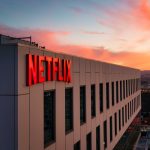FACEBOOK BANS APPS DUE TO IMPROPER DATA CONTROLS
Facebook bans more than 5,000 targeting terms in order to prevent misuse of its ad targeting platform.
The move will limit advertisers from excluding audiences from relating to ads based on ethnic or religious background.
According to an AFP report this would include terms such as “Passover”, “Islam”, “Buddhism” or Native American culture. Marketing has reached out to Facebook for the list of terms.
Following the move, a new certification will roll out gradually to all US advertisers via the Ads Manager tool.
Advertisers will need to complete the certification to continue advertising on the platform.
The new measures will also expand to other advertiser tools and APIs and other markets over time.
Facebook announced today that it had banned the app myPersonality for improper data controls and suspended hundreds more.
So far this is only the second app to be banned as a result of the company’s large-scale audit begun in March; but as myPersonality hasn’t been active since 2012, and was to all appearances a legitimate academic operation, it’s a bit of a mystery why they bothered.
At present, the number of app suspensions has reached 400.
Suspensions aren’t listed publicly, however, and apps may be suspended and reinstated without any user notification. The only other app to be banned via this process is Cambridge Analytica.
myPersonality was created by researchers at the Cambridge Psychometrics Centre (no relation to Cambridge Analytica — this is an actual academic institution) to source data from Facebook users via personality quizzes.
It operated from 2007 to 2012, and was quite successful, gathering data on some four million users (directly, not via friends) when it was operational.
The data set was used for the Centre’s own studies and other academics could request access to it via an online form; applications were vetted by CPC staff and had to be approved by the petitioner’s university’s ethics committee.
It transpired in May that a more or less complete set of the project’s data was available for anyone to download from GitHub, put there by some misguided scholar who had received access and decided to post it where their students could access it more easily.
Facebook suspended the app around then, saying “we believe that it may have violated Facebook’s policies.” That suspension later became a ban.
Why would Facebook suddenly decide in 2018, when the app had been inactive for years, that it had been in violation all that time?
The most obvious answer would be that its auditors never looked very closely in the first place, despite a cozy relationship with the researchers.
Ironically, Facebook’s accusation that myPersonality failed to secure user data correctly is exactly what the company itself appears to be guilty of, and at a far greater scale.
Just as CPC could not control what a researcher did with the data (for example, mistakenly post it publicly) once they had been approved by multiple other academics, Facebook could not control what companies like Cambridge Analytica did with data once it had been siphoned out under the respectable guise of research purposes. (Notably, it is projects like myPersonality that seem to have made that guise respectable to begin with.)
Perhaps Facebook’s standards have changed and what was okay by them in 2012 — and, apparently, in 2015 — is not acceptable now.
Users want stronger protections. But this banning of an app inactive for years and used successfully by real academics for actual research purposes has an air of theatricality.
It helps no one and will change nothing about myPersonality itself, which was stopped being maintained years ago, or the data set it created, which may very well still be analyzed for new insights by some enterprising social science grad student.
The ban is akin to Facebook mobilising a full-time barn door-closing operation years after the horses have bolted.
So when you and the other four million people get a notification that Facebook is protecting your privacy by banning an app you used a decade ago, it seems really odd.
In addition to this Facebook has identified and banned hundreds of accounts, groups, and pages engaged in misleading political behavior.
The social network said Tuesday that it had removed 652 pages, groups, and accounts linked to Russia and, unexpectedly, Iran, for “coordinated inauthentic behavior” that included the sharing of political material.
Facebook has significantly stepped up policing of its platform since last year, when it acknowledged that Russian agents successfully ran political influence operations on its platform that were aimed at swaying the 2016 presidential election.
Other social media networks have done likewise, and continue to turn up fresh evidence of political disinformation campaigns.
Facebook’s action in late July against 32 accounts possibly linked to Russia generally involved US political activity ahead of the midterm elections in November.
By contrast, the latest group of apparently fake accounts appeared more intent on influencing US foreign policy and regional politics in the Middle East.
Shortly after Facebook’s announcement, Twitter revealed that it had also suspended 284 accounts for “coordinated manipulation,” many of them apparently originating from Iran.
A day earlier, Microsoft also reported a new Russian effort to impersonate conservative US websites, potentially as part of an espionage campaign.
“There’s a lot we don’t know yet,” CEO Mark Zuckerberg said on a hastily called conference call with reporters Tuesday afternoon.
FireEye, a cybersecurity firm that alerted Facebook to some of this activity, noted that it “does not appear to have been specifically designed to influence the 2018 US midterm elections, as it extends well beyond US audiences and US politics.”
Leaders of Facebook, Google, and Twitter will testify before the intelligence committee about their efforts to combat political disinformation on their social media networks on September 5.

BEST OF GLOBAL DIGITAL MARKETING Conference 2018
The Best of Global Digital Marketing returns to Malaysia – showcasing best practices from all over the world!
Feeling a bit puzzled regarding what actually makes your content shine in the digital space?
Having investigated hundreds of case studies from all over the world – we now have the answers for you.
Hando and his team have monitored over 200 digital marketing award show across the globe. Based on this extensive work, they produce in-depth case studies which go into the making of the Best of Global Digital Marketing conference. Meet them in person:
Speakers with digital domain expertise:
# Hando Sinisalu – CEO and Speaker, case.digital (previously known as Best Marketing International)
# Joakim Borgstrom – Executive Creative Director, BBH Singapore
# Nikhil Panjwani – Creative Director, BBH Singapore
# Roman Olivarez – Creative Director, Lowe Makati City
# Amit Sutha – Managing Director of Universal McCann and Ensemble Worldwide
Global Case Studies include:
- Wendy’s ‘’Find the Burger’’
- Rexona ‘’Mobile Voice Pack’’
- KFC ‘’Rain or Shine – KFC Sells’’
- IKEA ‘’Human Catalog’’
- NIKE ‘’Hyper Court’’
- Dove “Image_Hack”
- Ontario Tourism ‘’Where Am I?’’
- Santander Bank “Beyond Money”
- McDonald’s “Promoticon”
- Nissan ‘’KEFA – Fake Spare Parts’’ and many more!
Date: 4 September 2018 (Tuesday)
Venue: Sime Darby Convention Centre, Kuala Lumpur.
Time: 9.00am – 5.00pm
Book your seats early, HRDF-Claimable!
Call Ruby/Amira 03-77262588 or email [email protected] | [email protected]
Register and Download event PDF here
Full details: http://best-marketing.eu/events/kl-2018/
MARKETING Magazine is not responsible for the content of external sites.









